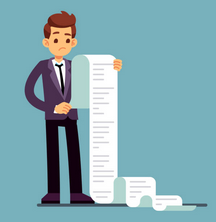MEDICAL LAWS COURSE
- Description
- Curriculum
- Reviews

This course on Medical Laws in India offers an in-depth understanding of the legal and regulatory landscape governing the healthcare sector. From doctors’ responsibilities, patients’ rights, hospital liabilities, to medical negligence, telemedicine, and the ethics of clinical practice, this course is designed to bridge the gap between medicine and law.
You will explore key legislations such as the Clinical Establishments Act, MCI Regulations, Consumer Protection Act (for medical negligence), Medical Termination of Pregnancy Act, Drugs and Cosmetics Act, Mental Healthcare Act, and recent updates related to surrogacy laws, organ transplantation, bioethics, and AI in healthcare.
Whether you’re a law student, medical professional, hospital administrator, or a legal advisor in the health sector, this course empowers you to understand patient consent, handle medico-legal cases, draft hospital policies, and ensure full compliance with health laws in India.
-
1Introduction to Medical Malpractice Law Definition, history, and importance Overview of tort law and negligence
-
2Legal Elements of Medical Malpractice Duty of care, breach, causation, damages
-
3Standard of Care in Medical Malpractice Determining standard of care Expert witness role
-
4Types of Medical Malpractice Claims Misdiagnosis, surgical errors, medication errors, birth injuries
-
5Statutes of Limitations & Legal Deadlines Variation by jurisdiction Tolling and exceptions
-
6Role of Expert Witnesses Qualifying experts Preparing expert reports
-
7Case Law Review: Landmark Medical Malpractice Cases Analyze key precedent cases
-
8Informed Consent in Medical Malpractice Legal standards and breaches
-
9Causation and Proximate Cause Proving causation in malpractice claims
-
10Damages in Medical Malpractice Compensatory, punitive damages Economic vs. non-economic damages
-
11Discovery Process Specific to Medical Malpractice Medical records, depositions, subpoenas
-
12Pre-trial Motions and Mediation Summary judgment, motions to dismiss, ADR options
-
13Trial Preparation and Jury Selection Strategies in jury selection for malpractice cases
-
14Trial Strategy & Presentation Opening statements, witness examination, closing arguments
-
15Medical Malpractice in Surgery
-
16Obstetrics and Gynecology Malpractice Birth injuries, delayed diagnosis
-
17Medication and Prescription Errors Pharmacology basics for lawyers, liability issues
-
18Diagnostic Errors Common pitfalls, expert testimony challenges
-
19Nursing Home and Long-term Care Malpractice Neglect, abuse, regulatory framework
-
20Emergency Room Malpractice Duty, triage, and documentation
-
21Medical Malpractice in Mental Health Care Standard of care, confidentiality, liability issues
-
22Common Defenses in Medical Malpractice
-
23Medical Malpractice Insurance Policy types, claims process, coverage disputes
-
24Risk Management in Healthcare Providers How providers limit liability, hospital protocols
-
25Ethical Issues in Medical Malpractice Lawyer’s ethical responsibilities, client confidentiality
-
26Handling Confidentiality and HIPAA Issues Privacy laws and discovery
-
27Dealing with Medical Boards and Regulatory Agencies Complaints and disciplinary processes
-
28Settlement Negotiations & Strategies Valuation, negotiation tactics, structured settlements
-
29Using Medical Records Effectively in Litigation
-
30Depositions of Medical Experts and Defendants Questioning strategies
-
31Preparing and Cross-examining Expert Witnesses Techniques for undermining or strengthening testimony
-
32Advanced Trial Tactics in Medical Malpractice Cases Handling complex evidence and demonstrations
-
33Technology and Medical Malpractice Telemedicine, electronic health records, AI in diagnosis
-
34International Perspectives on Medical Malpractice Law Comparative legal approaches
-
35Role-Playing: Mock Trial Simulation, Day 1 Opening statements and direct examination
-
36Mock Trial Simulation, Day 2 Cross-examination and closing arguments
-
37Post-Trial Motions and Appeals Grounds for appeal, appellate procedure
-
38Analyzing Medical Malpractice Settlements Case studies and lessons learned
-
39Writing Persuasive Medical Malpractice Briefs Legal writing tailored to malpractice cases
-
40Client Counseling and Communication Skills Managing expectations, delivering bad news
-
41Staying Updated: Research Tools and Resources Databases, journals, legal updates
-
42Legal Technology Tools for Medical Malpractice Lawyers Software for case management and trial prep
-
43Ethical Dilemmas and Continuing Legal Education (CLE) Keeping skills sharp and ethical standards
-
44Career Development in Medical Malpractice Law Networking, specialization, and practice management
-
45Final Review & Assessment and certificate session




